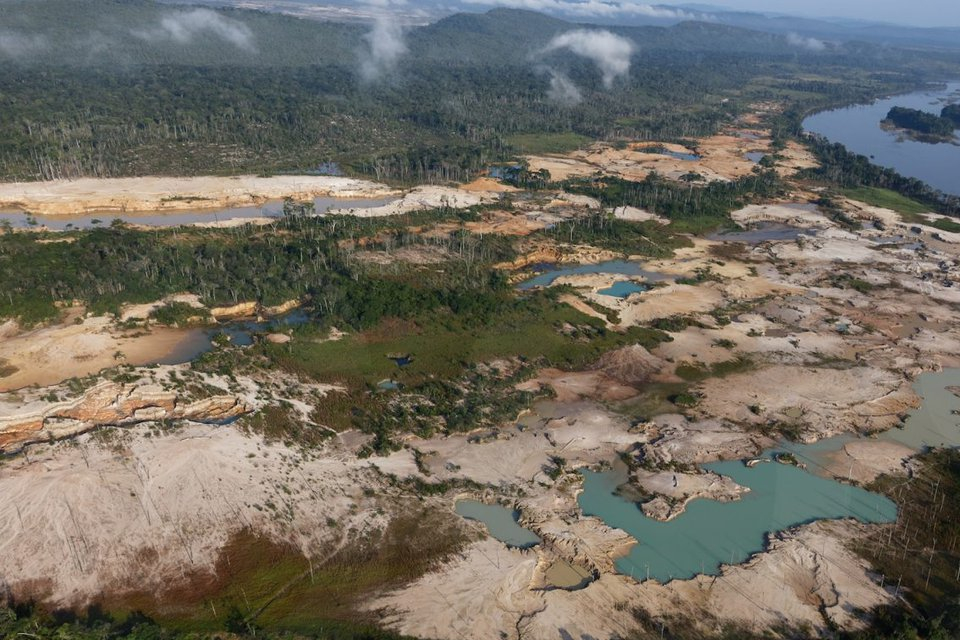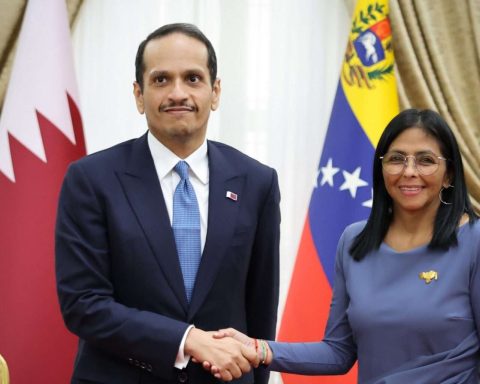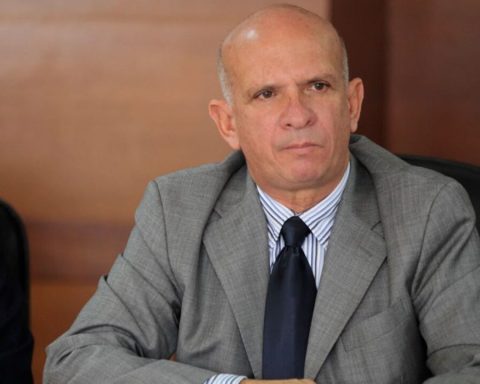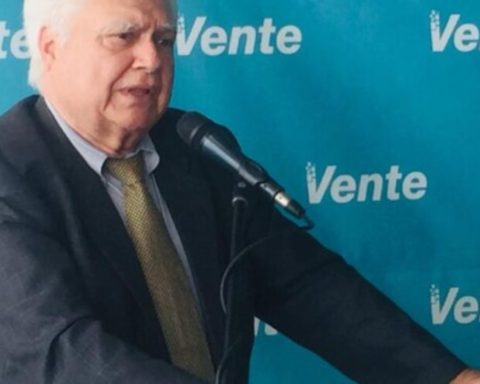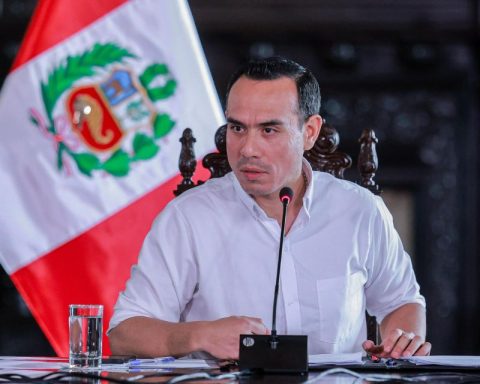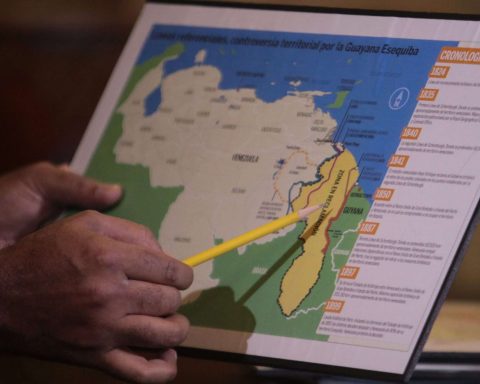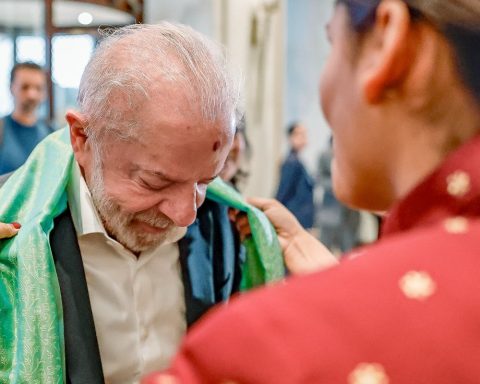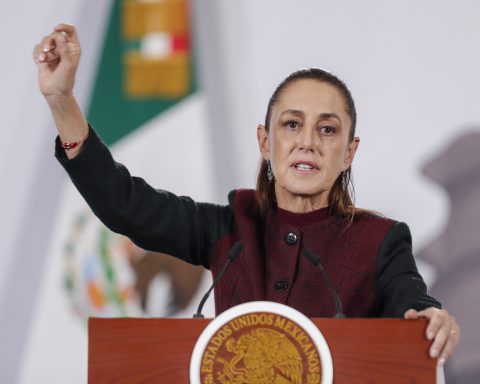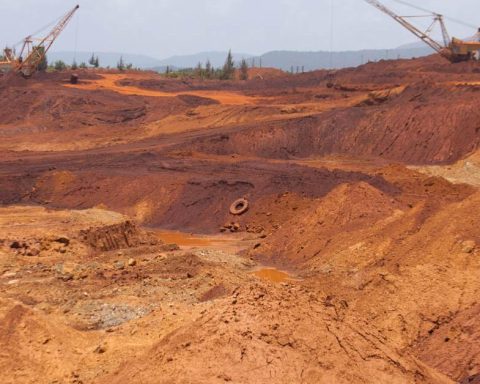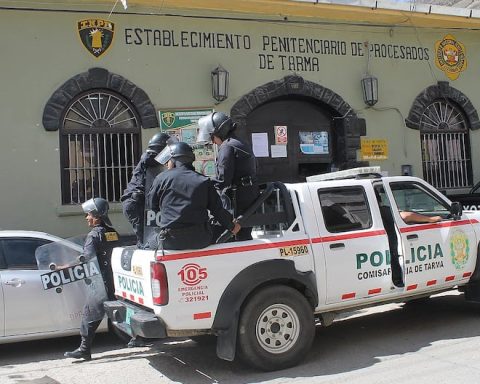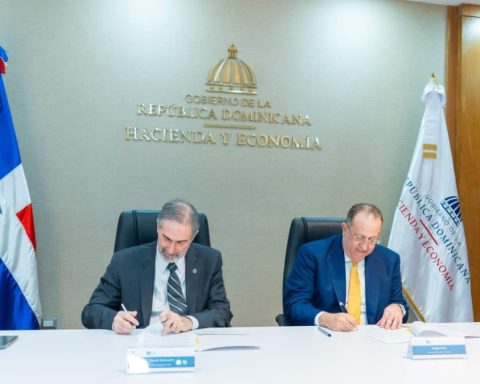Venezuela is scratched in terms of the environment. The lack of state regulations, policies and programs for the preservation and regeneration of damaged ecosystems results in an even greater ecological footprint. In SuchWhichwithin the framework of the UN commemoration of Earth Day, we present to you the environmental debts accumulated by the Maduro government
There is only one habitable planet for humans, although it is acted as if NASA had already found another with feasibility for man to live on. There are problems that seem to be insoluble and the Earth demands action: for its entire deforested forests, for the unprecedented extreme temperatures, for the seas full of plastic; due to the climatic phenomena that have affected millions of people around the world, the same ones that -in part- have caused changes within nature.
This April 22 marks Earth Day, proclaimed as such by the United Nations a little over a decade ago. The date serves as a reminder of the importance of adopting urgent measures that mitigate the collateral effects of the environmental crisis and address the root causes that are accelerating the destruction of the planet.
Nicolás Maduro spoke at the United Nations Conference on Climate Change (COP27) at the end of last year. There he boasted that Venezuela is responsible for less than 0.4% of global greenhouse gas emissions on the planet. But he omitted that this was due to the drop in activity due to the pandemic and not to an environmental policy of the State. He did not even mention that, for example, we are among the 10 Latin American countries with the highest CO emissions.2 per capita with nine tons per person. A report on green and just transition of the Organization for Economic Cooperation and Development affirms it.
In SuchWhich We present you the five things that Venezuela owes in environmental matters.
Less forest, less protection
Trees are crucial to natural ecosystems because they store 50% of the world’s terrestrial carbon, buffering the effect of extreme weather events. In the nation, however, there was a loss of 790,500 hectares of forests between 2000 and 2020 in the Amazon region alone. The NGO SOS Orinoco placed unplanned agricultural activities and mining as the main causes.
Every year, almost 50,000 hectares were damaged and estimates are that by 2030 1.5 million hectares will have been deforested, reports a bulletin of that organization published in March.

And yes, Venezuela is the fifth country in the world and the second in the region with the greatest biodiversity, that is, rich in tree species. But 614 of the Venezuelan tree species, 13% of a total of 4,812, are threatened with extinction. The International Association of Botanic Gardens for Conservation (BGCI) reflected this in its investigation “State of the World Trees”.
There, actions were urged to protect these types of threatened trees.
But “the absence of regulations and environmental management have left forested areas and the tree mass in general very unprotected. Clearing activities and appropriation of wood are carried out at the discretion of local authorities, with a view to the use of individuals and fundamentally economic objectives. Environmental crimes enjoy extraordinary impunity,” says the Observatory of Political Ecology of Venezuela (OEP).
Venezuela does not recycle
The culture of recycling, reuse and waste management is weak. The same OEP considers that in the region, the Venezuelan society is one of those that “worst handles garbage.” Its consideration is supported by numbers from Transparencia Venezuela: “Today the percentages of recycling at the regional level are around
between 12%-15% and, in Venezuela, we only reached 2%”. Countries like Mexico, for example, are close to 20%.
In the nation, 89% of the municipalities do not have recycling companies. By 2015, the final disposal sites, about 311, “operated with little control and some were in the hands of irregular groups.” The organization has not updated in this regard, but the complaints and denunciations of these cases persist.
!function(e,i,n,s){var t=”InfogramEmbeds”,d=e.getElementsByTagName(“script”)[0];if(window)[t]&&window[t].initialized)window[t].process&&window[t].process();else if(!e.getElementById(n)){var o=e.createElement(“script”);o.async=1,o.id=n,o.src=”https:// e.infogram.com/js/dist/embed-loader-min.js”,d.parentNode.insertBefore(o,d)}}(document,0,”infogram-async”);
NGOs have called for policies to be developed in this area, with local governments as main drivers and with partners such as generators and recyclers.
“Recycling must become a sustainable, safe and reliable source of work for end customers, and this requires technology, investment, educational programs and organization, all provided for in the Comprehensive Law on Garbage Management (…) the Law requires to the existence of sanitary landfills as final disposal sites and this mandate, which is in the hands of the National Government, has not been able to materialize, persisting dumps and open-air dumps, which has serious health impacts on the communities, “says the Transparency report «Garbage: something smells bad».
There is no sustainable transport
Transportation systems are key to contributing to the climate response and fostering sustainable development, especially at a time when “the world’s roads are saturated with vehicles, most of which run on diesel or gasoline.” Inserting electric bicycles and buses into the national public networks would be a solution.
That was a point discussed in 2021 at the second Global Conference UN Sustainable Transport. There it was stressed that this action would strengthen connectivity at all levels and reduce the environmental impacts caused by the sector, which produces a quarter of the carbon emissions registered on a global scale.
In the country, however, the path towards ecological mobility is paralyzed. In fact, go back.
Around 2013, the Public Bicycle System (SPB) was proposed in Caracas, through the mayor’s office, with the construction of the first bicycle lane. It was a promising plan that would connect the Libertador and Baruta municipalities, but it was overwhelmed by corruption. Thus the germ of having sustainable transport alternatives was stunned
* Also read: The cycling program for Caracas was overwhelmed by corruption
In 2021, there were 45 trolleybuses (E-Bus Radar) in the country that were powered by electricity and 300,000 who depended on gasoline (United Transport of Venezuela) ; approximately one for every 6,667. This amount represents 1.8% of the total 2,482 electric buses that the page counts in the region, where there are 90 electric units for every 406 that work with fossil fuel.
Energy transition did not see light In Venezuela
UN-Energyin order to guarantee access to clean energy for all by 2030 and reach net zero emissions by 2050. The agency intends to achieve this by eliminating plans to produce coal-fired energy and doubling annual investment in renewable energy.
Our country is far from that reality.
For years, Venezuela has relied on large hydroelectric, oil and gas plants to meet its energy needs. In Latin America and the world it was an oil power, but that golden age came to an end. The crisis in the oil sector and the climate footprint itself caused by fossil fuels led the country to consider a change in its consumption habits and introduce the use of renewable energy into its plans.
The Venezuelan electric park generates 24,000 megawatts (MW), according to the National Electric Corporation. Solar and wind energy could cover 30% of that electrical load could. However, the lack of investment in technology transfer and the absence of policies in this area have prevented it. Luis Ángel Ramírez, doctor in Sciences and Green Energies and professor of Renewable Energies at the Universidad Católica Andrés Bello (UCAB), has highlighted this on several occasions.
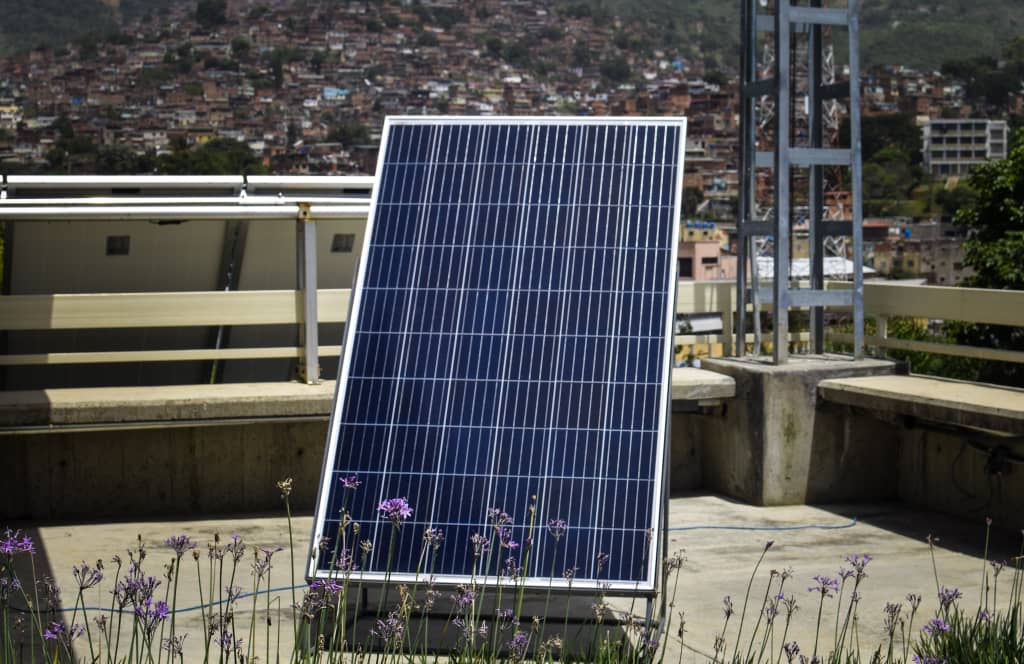
Solar panel on the Green Roof of the Andrés Bello Catholic University
The water that is wasted
The Observatory of Public Expenditure of Cedice Libertad estimates that the recovery of the water sector, in a period of three to five years, requires an investment of 1,400 million dollars. All this to fix, among other things, breakdowns in distribution systems and broken pipes and boost water distribution plants, which were already working at 45% of their capacity by 2021.
«Three years after the creation of the Ministry of Water Attention, in Venezuela the complaints of contamination of lakes, rivers and beaches due to sewage are growing. At least nine states in the country have Wastewater Treatment Plants that are paralyzed or failing to function,” Transparencia Venezuela confirmed last year in a report on wastewater as one of the many environmental debts of Venezuela.
Of that amount, 30% should be used for sanitation, 50% for treatment and coverage, and 20% for preventive monitoring, the organization suggested.
And yes, there is a National Plan for the Water System 2019-2025 that contemplates the design of projects for macro water treatment plants served for all the states of the country, but it does not contemplate possible maintenance or rehabilitation of the —at least— 50 plants that exist in the territory with operational problems.
“The lack of public policies and information on the management of these waters throughout the country hides severe environmental damage that can explode at any time and about which few care. Transparency Venezuela warns about this serious problem and joins its voice to that of academic experts and representatives of civil society organizations, to demand access to public information and urgent professional attention,” the document stated.
Post Views: 994
